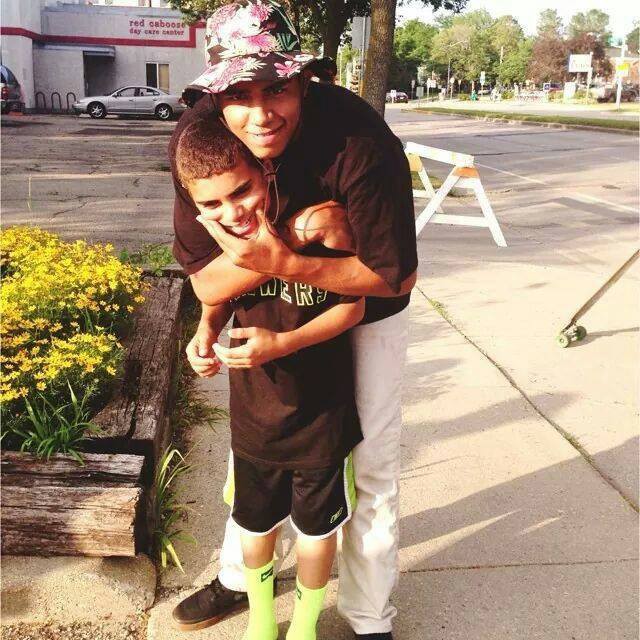I can’t forget Tony Robinson. And I mean that in two very specific ways. In the 12 months since Robinson was killed by a Madison police officer I see him, Tony—a 19-year-old African American Madisonian I never met—in people, places and events throughout our city.
Before March 6, 2015, I saw Madison school kids under-performing their white counterparts, young people at the Urban League looking for employment opportunities and the knowledge and experiences to take advantage of them, teens in tense standoffs with authority for reasons beyond my experience and any number of black boys in Madison, boys just being boys. But I saw them, for the most part, as nameless, faceless kids. Just kids. Now I see Tony Robinson. I ask myself over and over: Is this Tony? Is that Tony? How many are Tony?
The second way is actually a responsibility, a professional and personal and moral duty I have to not forget Tony Robinson.
Both ways make acknowledging the one-year anniversary of his death important. It is very disconcerting to think of how many people do not remember much about the events of last March. How many people have chosen not to remember. And I have to balance that with the need to acknowledge those who do remember and whose lives and perspectives have been changed. And I’m talking about white people now. As we have perhaps finally begun to understand, circumstances of the killing of Tony Robinson were not news to black people. But there are white people who are not the same as they were on March 5 of last year. And I, we, cannot forget.
There was always some risk in the peaceful response to what we have grown accustomed to referring to as an officer-involved shooting, and the subsequent decision not to charge officer Matt Kenney with wrong-doing in the killing. The risk was that by thinking ourselves successful in avoiding chaos and destruction and violence, in doing the right thing, in congratulating ourselves for “not being Ferguson,” that we would be forgetting Tony, and worse, forgetting the continuing presence in our city of the factors that played a role in his death. And while I share a sense of relief, even pride, that Madison—led by black leaders—responded peacefully, it is the ongoing presence of those factors that makes it imperative we not forget Tony.
Early in the year, the managers of Madison Magazine and our sister company WISC-TV held a community listening session, something the broadcast industry calls ascertainment meetings, to talk about community issues and how we are covering them. We partnered with the Urban League of Greater Madison, and president and CEO Ruben Anthony and more than two dozen staff, board members, volunteers and supporters came to our office and we talked. Actually, they talked. We listened. The conversation touched on many of the issues raised in the Race to Equity report, issues that were so clearly present in the death of Tony.
But it was the always thoughtful Young, Gifted and Black leader Brandi Grayson who challenged us to see—truly see—the environments in which so many black kids are growing up here in Madison. The headlines show us increases in gun violence, lawlessness and reckless behaviors that demand a response. The rest of the story is the disparities in education, income, employment and opportunity, the disparities in trust and understanding and knowledge, and the disparities in hope that differentiate the places where these kids grow up and live. Not just statistics, but the reality of growing up and living in these places in this city.
Many of us drive through them every day. Many of us live there. Many more of us now want to make these places better. And many more of us need to look at them much more closely, to see Tony. To remember Tony




























